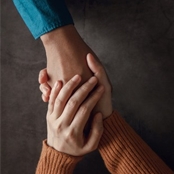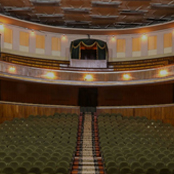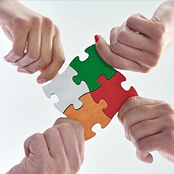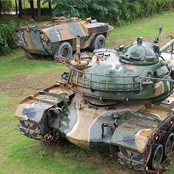Unification, Security and North Korean Studies
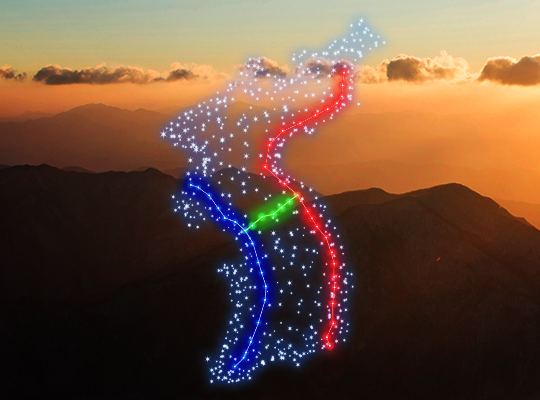
Major Overview
To foster field specialists for international cooperation and North Korea-related duties
After switching from a foreign aid recipient country to an aid donor country in the 1990s, Korea has implemented diverse development and cooperation projects for the socio-economic development of the developing countries at the level of private-sector development assistance NGOs and corporate social responsibility activities of business companies as well as the government.
The Official Development Assistance (ODA) budget of Korea increased by 14.6% to KRW 3.49 trillion in 2019 compared to 2018. The aid amount is expected to increase steadily to 0.7% of the Gross National Income as recommended by the United Nations. Development assistance projects need to grow qualitatively as well as quantitatively. Most of all, there is a need for so-called field specialists who can plan and implement projects to derive achievements by understanding the demand and context at the sites of development assistance.
Furthermore, North and South Koreas, the parties to the deployment of peace on the Korean peninsula—which continues to draw international attention—have grown heterogeneity and antipathy under system-related competition and confrontation for over 75 years. Still, reconciliation and cooperation with North Korea are absolutely necessary to pursue peaceful unification, which has remained the historical task of the nation. North Korea is not only a cooperation partner for coexistence from the viewpoint of the nation but is still a target that requires our vigilance despite being compatriots. Therefore, we need experts who can plan and implement North Korea-related cooperation, reconciliation, and development projects based on internationally recognized universal values by understanding North Korea objectively based on its realities.
The areas of such international cooperation and inter-Korea exchange projects are really diverse, including administration, agriculture, economic development, health, education, and emergency humanitarian support projects. Thus, it is definitely necessary to foster general specialists for integrated management who can inclusively understand, coordinate, and manage such important areas as well as experts specializing in individual areas.
Nonetheless, the diverse stakeholders we meet on site are most important, including the local (North Korean) government officials, community leaders, NGO (labor) members, journalists, and staff members of international organization. We intend to foster experts who can understand the interests and influences of such stakeholders to communicate with them based on outstanding communication and coordination abilities and cultural sensitivity.
Thus, we have selected the following areas where experts are insufficient despite being most required on site by analyzing the diverse assistance projects performed in North Korea and other developing countries:
- Regional development projects that revive the regional welfare and economy based on public values utilizing the valuable assets of the region, including projects related to cooperative associations or social enterprises
- Psychosocial support to children and women exposed to large-scale disasters and other complex crisis situations in North Korea and developing countries
- International health projects that prevent and address contagious diseases caused by malnutrition, sanitation problems such as potable water, etc. and non-contagious diseases attributable to misconception
To meet the requirements of the communities of international cooperation and North Korea, students majoring in international cooperation and North Korea will be equipped with core competencies to serve as experts in the abovementioned areas through study of major subjects related to the segments, including basic theories of development assistance and North Korean society and economy.
Objectives of education
The sites of international and North Korea development assistance require general specialist competencies for planning and managing projects with knowledge and experiences in diverse fields as well as special generalists specializing in disaster relief, international health, and regional development.
Therefore, below are the objectives of education for the international cooperation and North Korea major to develop such competencies:
- To foster innovative thinking ability for resolving practical tasks in handling complex international development assistance and inter-Korea exchange based on convergence knowledge of key areas
- To cultivate multicultural communication ability for developing partnership through communication with diverse stakeholders on site
- To enhance the mindset of global peace citizens contributing to the implementation of sustainable development goals (SDGs) defined by the UN and Korean peninsula peace process
Career Opportunities upon Graduation
- Government ministries/agencies : Ministry of Foreign Affairs, Ministry of Unification, KOICA, Economic Development Cooperation Fund(EDCF), Korea Hana Foundation, Institute for Unification Education (unification education instructors), etc.
- Development Cooperation and Inter-Korea Exchange NGOs : Korea NGO Council for Overseas Development Cooperation (KCOC) member organizations, Korea NGO Council for Cooperation with North Korea (KNCCK) member organizations, Korean Council for Reconciliation and Cooperation, etc.
- Volunteer service groups : World Friends Korea General Volunteer Group, Mid- and Long-term Advisory Group, NGO Volunteer Group, UN Volunteers, Mentors for helping North Korean defectors adapt to South Korean society, resettlement guide, etc.
- Overseas missionary group by religion : Full-time missionary dispatched to developing countries, professional missionary, missionary collaborating with development NGOs, developers and administrators of missionary group headquarters programs
- Businesses : Large enterprises (global CSR team), development assistance consulting service companies, international development cooperation and North Korea development-related (social) businesses
- Graduate schools : Graduate schools of international studies of leading local universities, graduate school for masters in North Korea studies, International development or relations (North Korea studies) in the UK, USA, Europe, etc.
- UN Peacekeeping Forces : Intelligence, planning, and civilian affairs officers or NCOs of Korean overseas forces













